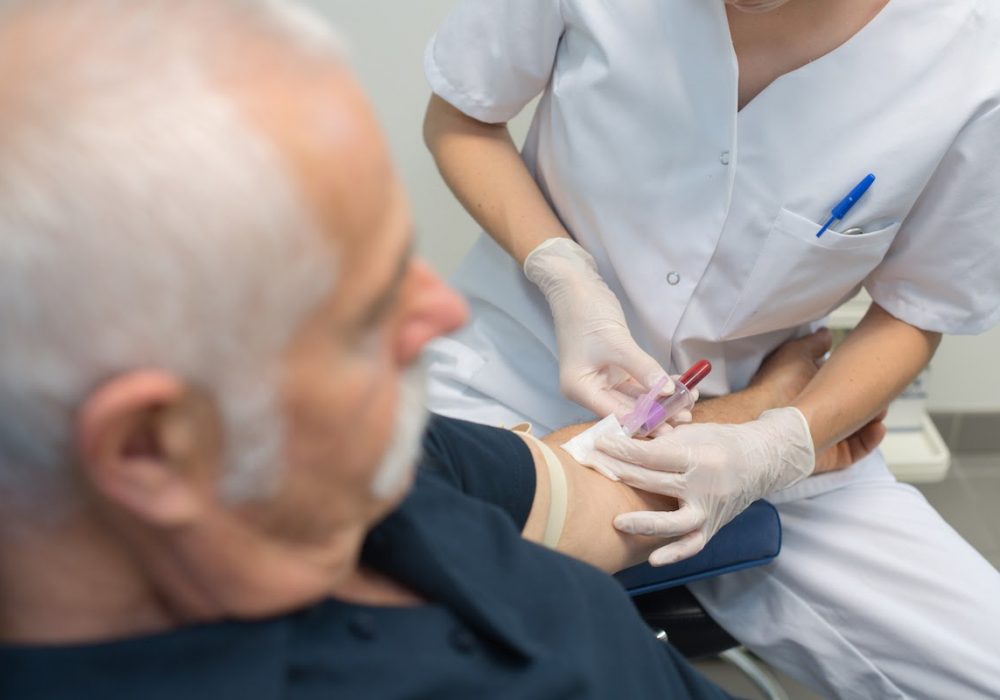Your blood says a lot about you. It also says a lot about life itself, our unique biology, where we came from, and the complexities of human physiology. For centuries, people have been fascinated with blood, as it is a symbol of both life and death. There is deeply entrenched lore around it as well, including stories of vampires and werewolves all after the enigmatic power that rests in human blood. And for many years, curiosity about this liquid in our bodies has fueled many mystical musings and revolutionary medical advancements and discoveries. Blood carries with it great mysteries and great answers, so let’s talk about blood.
Some Brow-Raising Facts About What’s Running Through Your Veins
Different cultures have different attitudes regarding blood and its nature. From the throes of history, humans have had a very unique relationship to blood. In ancient Rome, after a gladiator was defeated in battle and lay bleeding on the floor, it was not uncommon for those with ailments to drink the fresh blood of the dead in an attempt to cure themselves of their afflictions.
In some remote villages in Nepal, for example, a young girl going through menstruation might not be allowed to go into her family’s home. In ancient Rome, some believed that menstrual blood had the power to stop a swarm of bees and could stop seeds from germinating. In orthodox Judaism, kosher meat must be drained of blood. And of course, every week, millions of Catholics around the world participate in the sacrament that involves bread and wine—which are seen as the body and blood of Christ—as part of a central ritual of Christianity. This just gives you an idea of how human beings have long ago been entranced by blood’s mysterious ways. It has been central to human ritual, medicine, and understanding of the body for a long time.
Luckily, we don’t do much blood-drinking nowadays, so unless you are in the medical field or studying to be in the medical field, your contact with blood is likely minimal. It’s not something we necessarily seek out on a day to day basis, but oh everyday your blood is working to make sure many functions in your body work together. Perhaps once you discover just how complex your blood is, you might see it in a different light. We have about 9 pints of blood in our system and it travels throughout your system, tallying a whopping 12,000 or so miles a day. Also,
- There are 150 billion blood cells in one ounce of blood and 2.4 trillion red blood cells in one pint.
- It takes approximately 20 to 60 seconds for a drop of blood to travel from the heart, go throughout your body, and come back around again.
- Crabs have blue blood!
The Bloody Truth as Told by a Complete Blood Panel
So if you’ve had a physical examination lately, your doctor might have recommended a blood panel. Having regular blood work is a routine way to keep an eye on your health and monitor potential health problems and complications. That’s because within your blood exists a complex code that contains information that reveals a lot about some of the functions in your body. Here are some of the common blood tests that your doctor may ask for during a routine physical or check-up:
Complete blood count
A complete blood count test or CBC measures a variety of the blood’s components. It will give you a count of red blood cells, white blood cells, hemoglobin, platelets, mean corpuscular volume, hematocrit. So this count helps your physician look for certain blood disorders like anemia. The count of your red blood cells, for example, will show anemia or blood loss. White blood cells help with immunity and a count of this will help determine that. It will also reveal clues about possible infection, inflammation, infection, or immune system disorders. This is one test that is necessary to fast for.
Basic metabolic panel
This panel is a group of tests that measures chemicals in your blood. It measures blood glucose, calcium, and electrolytes, which are minerals in your blood. This provides a wide range of information for your physician, including information about your heart, muscles, bones, and organs.
Blood enzyme test
Enzymes are catalysts for chemical reactions and therefore very important to the function of several processes in the body. This test can be an indicator of several things, one of the most common is that it can help you determine if you have had a heart attack and/or if there is damage to the heart muscle.
Lipoprotein panel
Lipoprotein panel measures your HDL and LDL (good and bad, respectively) cholesterol levels, as well as your triglycerides, a type of fat. If you are at risk for coronary heart disease, this might be a test your doctor will recommend.
Blood tests help to find and assess issues before they cause bigger problems. For young people to older adults, the benefits of maintaining regular blood work can be tremendous. For older adults, these blood tests can often find the cause of common complaints of aging—such as fatigue and low energy.
See What Your Blood Has to Say and Visit CNA Adult Primary Care Today!
What does your blood say about you? Come by our office here at CNA Adult Primary Care and talk to a physician about getting bloodwork or a routine physical. We can help you figure out what test might be right for you.
